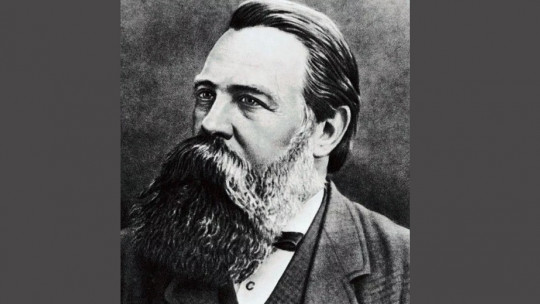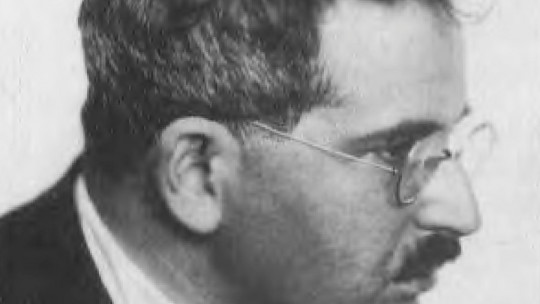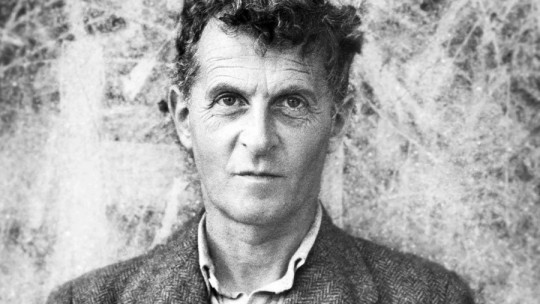On the Genealogy of Morality, Beyond Good and Evil, Thus spake Zarathustra…These titles are widely known worldwide due to their profound criticism of the morals and philosophy of their time and their importance in the development of philosophical thought in the 19th and 20th centuries. These are works of Friedrich Nietzsche, philosopher of Prussian origin, of whom in this article we do a brief biography
Biography of Friedrich Nietzsche
Friedrich Nietzsche was born on October 15, 1844 in Röcken, a town at that time in Prussia that is currently part of Germany, being the first-born of three brothers.
Son of the Lutheran pastor Carl Ludwig Nietzsche and Franziska Oehler , his early years were spent in a religious environment. However, when he was four years old, his father died due to a neurological disease. This loss was joined by that of his brother shortly after. After these deaths, the family composed of Nietzsche, his mother, his sister, and his sisters moved to live with their grandmother and aunts in Naumburg, being protected by the magistrate Bemhard Dächsel. What happened next was a life trajectory that produced one of the most brilliant minds of his time.
Education
The famous philosopher’s education began in public school. The young man’s schooling was not easy, since Nietzsche would suffer from various health problems from a young age, including headaches and vision problems This, together with his serious nature, often made him the object of ridicule among students. Despite everything, Nietzsche manifested a great ability for letters, which would end up causing him to be admitted to the prestigious Schulpforta school. In it he would receive instruction in the world of literature, performing various poetic essays.
In 1864 he would begin his degree in Theology at the University of Bonn, but a little less than a semester later He would abandon those studies to begin Philology, which he would continue in Leipzig During his studies he was inspired by Lange and Schopenhauer, an inspiration that would end up leading the young man to become interested in philosophical reflection. After a brief stint in military service that would end due to a fall from a horse, he returned to his studies and finished them in 1869.
The University of Basel, in Switzerland, offered him to work as a professor of philology even before finishing his degree, an offer he accepted. After the transfer he renounced his German citizenship. Later he would serve again in the Prussian army, as a stretcher bearer an experience in which he contracted diseases such as diphtheria that complicated his health.
First publications and beginnings of his philosophical position
Nietzsche would later publish his first books, receiving harsh criticism from various personalities of the time. During those years, Otto von Bismarck would end up uniting what would be called the German Empire, whose cultural development would later be criticized by Nietzsche. At this time he would form a turbulent friendship with Wagner which would eventually break.
It is at this time that he begins to criticize the prevailing rationalism and defend instincts and emotions, advocating nativism and the instinctive. His criticism focuses on the culture of reason, static and decadent, which opposes biological impulses.
Based on this also criticism of morality and religion appears (focusing specifically on the Judeo-Christian vision and especially on the Church), with values that meant that the population would submit and be enslaved in accordance with what the weak (those slaves who do not have control over their lives and do not follow their strength and instincts) will dictate based on the identification of said values with goodness. The idea would arise of the need to generate new values in which biological imperatives were taken into account, an idea that would end up generating the concept of superman.
Worsening health and its most prolific stage
Nietzsche’s health, suffering from various diseases (among which it is speculated was syphilis), would worsen over time. For this reason he was forced to leave his teaching position in Basel.
Due to his health problems, Nietzsche would travel frequently. to different cities with a milder climate, despite returning home from time to time to visit his family. This is his most prolific period in terms of publications and philosophical thought. He fell in love with Lou Andreas-Salomé and proposed to her, but was rejected.
This, together with the loss of relationships with former friends like Wagner, would lead him to increasingly deeper isolation. It is at this time that he wrote “Thus Spoke Zarathustra”, and “Beyond Good and Evil”, one of his best-known works. However, his publications were never widely accepted by society.
His sister would marry a well-known writer named Bernhard Förster and he would travel with him to Paraguay, the ideology and anti-Semitism of this being a reason for Nietzsche’s rejection. In 1887 he published On the Genealogy of Morality, being in increasingly worse health. However, his writings began to have increasing success and interest from the general population.
Internment and death
In 1989, at the age of forty-four, the well-known author suffered a collapse, after which he had to retire. He was admitted to a Basel asylum with symptoms that today suggest dementia, possibly derived from syphilis, or a possible brain tumor His secretary Gast and his friend Overbeck (known and friend since the time in Basel), decided to publish his works “The Antichrist” and “Ecce Homo”.
Nietzsche would later be taken by his mother to a clinic in Naumburg and then home in 1890. After she died, he moved with his sister, who had returned after becoming a widow, to Weimar. There he died on August 25, 1900 due to pneumonia.
Nietzsche’s legacy
The legacy that Nietzsche has left is of incalculable value and has had great influence on the world. Aspects such as nihilism or decadence of Western thought and classical and rational philosophy, the avoidance of Dionysian desires and impulses and the following of slave morality, the criticism of religion as an instrument of control that makes the population be slaves and submissive due to the identification of these traits and suffering as good are elements that, although they may be controversial and difficult to interpret, have aroused the interest of numerous thinkers and have inspired great works and social and political reinterpretations.
We can see an example of this in Sigmund Freud, whose works have been influenced by the criticism of rationality and the defense of instinctive and innate forces.
Unfortunately, there have also been interpretations of his works with less benign purposes and consequences. social criticism, the defense of individualism and identity, ideology and the concept of superman would be distorted and reinterpreted by various figures who would end up using it as a basis for some of the actions and bases of Nazism.









